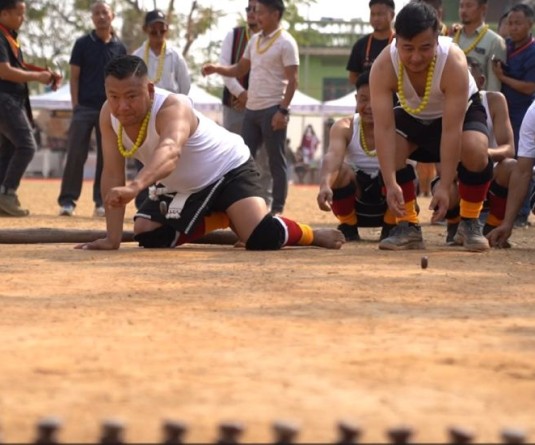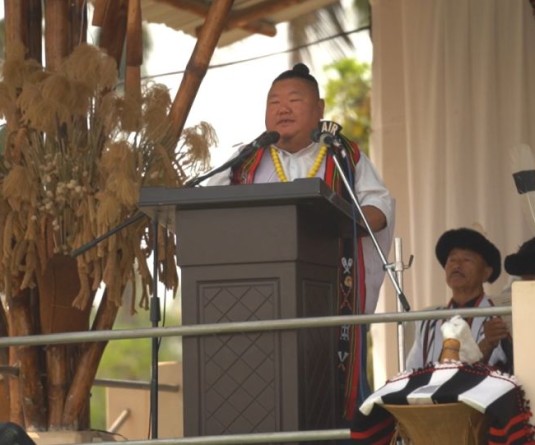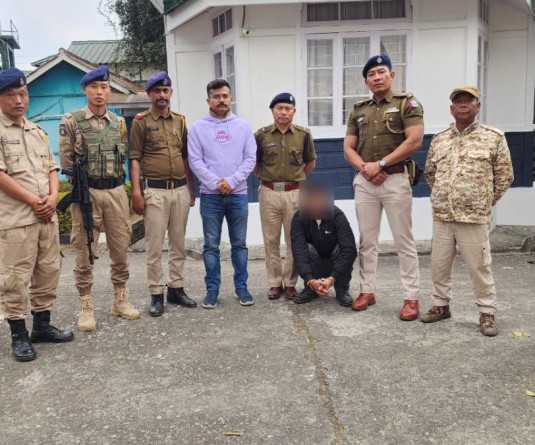
Dimapur, August 31 (MExN): A recent article published by the Asian Human Rights Commission elaborates the seemingly irreversible decay that has saturated Indian institutions of justice and law and order mechanisms, administrative politics and politicians. Simply, it is about corrupt leaders taking stand “against” corruption; corrupt police officers investigating corruption; politicians heeding to injustice only when there is money involved. No wonder India is one of the most corrupt countries in the world today.
For the police to do their job, the article stated, there are different “rates” of money one has to pay as bribe. “At the moment the rates of bribe within the Kerala state police concerning cases involving unnatural deaths are as follows: Rs. 3000.00 for the Circle Inspector; Rs. 2000.00 for the Inspector; and Rs. 2000.00 to 3000.00 to be shared between the police constables of the police station where the case is processed,” a social activist said. “If a superior officer like a Deputy Superintendent is involved, it is common for the superior officer to demand at least Rs. 5000.00. If the relatives of the deceased fail to pay this money, upfront, the police often refuse to take any action to complete the legal formalities.” They may also threaten the relatives, that they suspect foul play in the death and make the relatives of the deceased person visit police station endlessly on the pretext of questioning. Fearing consequences, people pay up, without asking any questions.
But the story does not end here: Once, for instance, a corpse is taken to the hospital for autopsy, there too relatives have to pay. Depending upon the condition of the body, the mortuary assistants in the hospital fix their rate of bribe. For instance, if the body is decomposed, the relatives will have to pay Rs. 3000 to 5000 at the hospital as bribes.
And local politicians find their “meal” too. They are willing to accompany complainants to the police stations, and throw their weight around as a local political leader to get the services required by the complainant. But this service too comes at a cost.
Another instance of corrupt policemen the AHRC referred to, was that of a police officer, one Buvanachandran, working for the State Vigilance and Anti-Corruption Department as Police Superintendent currently stationed in Kochi. He is one of the most notorious police officers in active service in the state. This officer’s name was first found in the media way back 1990, when he was suspected to be involved in the custodial death of a person named Christudas, said to be a Pentecost pastor.
Later the officer was again in the media, accused of fabricating a criminal case against one of the witnesses to Christudas’ murder, one Udayalal. It was alleged that the officer falsely entered Udayalal’s age as above 18 at the alleged time of Udayalal committing the crime he was accused of.
Once again the media cited Buvanachandran’s name, this time involving his son and some of his subordinate colleagues.
It was reported that a Sub Inspector of Police while conducting random road check for drivers, stopped Buvanachandran’s son, while he was riding a motorcycle. The boy stopped and informed the Sub Inspector that he is the son of officer Buvanachandran, who at the time was serving as the Commandant at the Armed Police Camp in Thrissur. The Sub Inspector did not offer any special concession to his superior colleague’s son. Enraged by this the boy pushed the officer, argued with him and tried to flee. The officer took the boy into custody and took him to the police station.
Buvanachandran, being informed about the police case against his son stormed into the police station shouting abuses against the Sub Inspector. He then allegedly assaulted the subordinate officer and kicked him inside the police station. He abused the officer as well as his subordinates and went off with his son, against which there is still no case.
During the same time, Buvanachandran again was in the news with his name tagged with a missing rifle from the police camp of which he was in charge of. Buvanachandran assaulted a police constable who deposed against him in an inquiry on this case. This too was in the media. The same officer was accused of being involved in a fake currency case and even with petty theft of a teak tree from the police camp. The teakwood, suspected to be from the tree that went missing from the camp was recovered from Buvanachandran’s house. Yet again, as it was the practice in all past occasions, no case was registered against the officer and allegations remained hushed ‘rumors’ within the police department and scandalous news reports in the media.
It is the same officer who is entrusted with investigating corruption at the Vigilance and Anti Corruption Department. Indeed Buvanachandran is of the senior officer rank, with an Indian Police Service (IPS) tagged to his name, which means that he will continue to be in service holding very important posts in the state.
Similar is the case of another senior IPS officer, Tomin J Thachankary. This officer’s name is tagged with suspected terrorists, international money laundering and many other serious crimes. He is alleged to be a mate of the current State Home Minister, who is reportedly protecting him. The only difference is that while Tomin J Thachankary is of the rank, Inspector General of Police, Buvanachandran remains a Police Superintendent.
“Not many persons are willing to speak about these issues in the state. This is due to the fear that speaking against the police, even if it is the truth, will result in violent reactions from the police or from the criminals employed by the police,” the article stated.
NGO Nervazhi has assisted filing of about 15 complaints with AHRC in the last year and almost the same number of cases till today, this year. “We do not have any hope that these complaints will be independently investigated that will result in providing redress to the complainants. Yet I think as a citizen and a person concerned about human rights, it is my responsibility to make use of all mechanisms available within the legal framework of this country to fight against the above evils,” the social worker stated.






